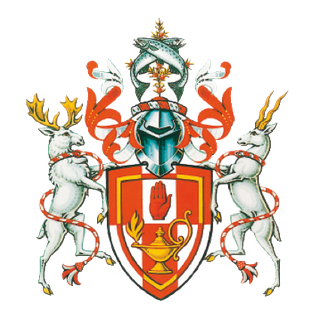PhD studentships in Additive Manufacturing Engineering of Metal Alloys
Applications are invited for three PhD studentships tenable in the Faculty of Computing and Engineering at Ulster University based at the Magee campus. The PhD studentships on offer relate to different research areas in Additive Manufacturing and are funded as part of the INTERREG North West Centre for Advanced Manufacturing. (Please note that faculty restructuring is underway and, under the proposed structures, the studentship will be tenable in the Faculty of Computing, Engineering and the Built Environment.)
Project Background: North West Centre for Advanced Manufacturing
A project supported by the EU’s PEACE IV/ INTERREG VA programme, managed by the Special EU programmes body (SEUPB). This project aims to create an Advanced Manufacturing super cluster combining the collective and complementary strengths of the Engineering Research Institute at Ulster University; the James Watt Nanofabrication Centre at Glasgow University; the PEM Centre at Sligo Institute of Technology; and CoLab at Letterkenny Institute of Technology. The project bid was co-ordinated by Catalyst Inc. This project includes themes on sustainable manufacturing of advanced polymers, additive manufacturing, and manufacturing technology for nanoscience applications. The additive manufacturing theme is coordinated through Ulster University’s Magee campus in Derry/Londonderry.
The project will enable eight regional Health & Life Sciences companies, predominately based in the North West to develop new products and processes; thereby, strengthening the Regional economy.
Rationale
Additive manufacturing, also referred to as 3D printing, is a term used to cover a range of processes for the manufacture of three-dimensional components. Additive Manufacturing technologies build three-dimensional components by adding successive layers of feedstock material that fuse together to create consolidated components. Materials for Additive Manufacture include polymers, metals and ceramics.
The resulting 3D components may possess intricate geometrical features that are otherwise impossible to achieve using traditional manufacturing. In addition, Additive Manufacture processes are typically more sustainable than traditional manufacturing processes because they are less wasteful of both energy and material. There are fewer dedicated tooling requirements for Additive Manufacture; hence, recurring tooling costs are negligible. Additive Manufacture processes are controlled by computer; therefore, parts are conveniently produced directly from 3D computer models or other electronic data sources. With the uptake of AM technology, supply chain logistics can be decentralised thereby allowing local manufacturers to supply low-volume batches of highly engineered components for a wide variety of applications.
The UK National Strategy for Additive Manufacturing / 3D Printing (AM-3DP) highlights the UK’s opportunity in the rapidly expanding AM market. The global market for AM products and services in 2015 was £3.59bn of which the UK share was 5%. These markets are growing at a rate of 31.5% annually and this strong growth in the UK AM market has been forecasted to be £1bn in 2020 rising to £5.6bn in 2025. It is expected that AM technology in the UK will impact around 100 different industry activities. For all of the reasons cited, Additive Manufacture is deemed to be a disruptive technology that will allow us to improve how we do business. However, the current generation of Additive Manufacturing processes have limitations that need to be researched in detail. Significant research is required in Additive Manufacturing Technology to help it realise its full potential.
The Research topics proposed are in the area of metallic materials for medical products. These are areas of competence for Ulster University.
Projects
- Optimisation of the Laser Sintering of Metals Parts for Medical Products
- Development of Process Simulation Models for Metal Laser Sintering
- Design and development of additive manufacturing process machinery for production of larger structures
Studentship Details and Entrance Requirements
The studentships comprise of full fees and an annual stipend of £14,553. Studentships will be awarded on a full-time basis for a three-year period, subject to satisfactory progress being made towards the degree of the Doctor of Philosophy.
Applications will be considered on a competitive basis with regard to the candidate’s qualifications, experience, and interests. Candidates should hold, or expect to hold, a first class or upper second class honours degree (as a minimum) in Engineering, Science, or cognate discipline. The admission process and programme of study will proceed according to Ulster University regulations and requirements.
The closing date for receipt of completed applications is 15th September 2017. Interviews will be held in September 2017. Project registration and planned starting date is expected to be 1 October 2017 or as soon as possible.
The post is fully externally funded and supported by the EU’s PEACE IV/ INTERREG VA programme, managed by the Special EU programmes body (SEUPB).
For more information please click "Further Official Information" below.
